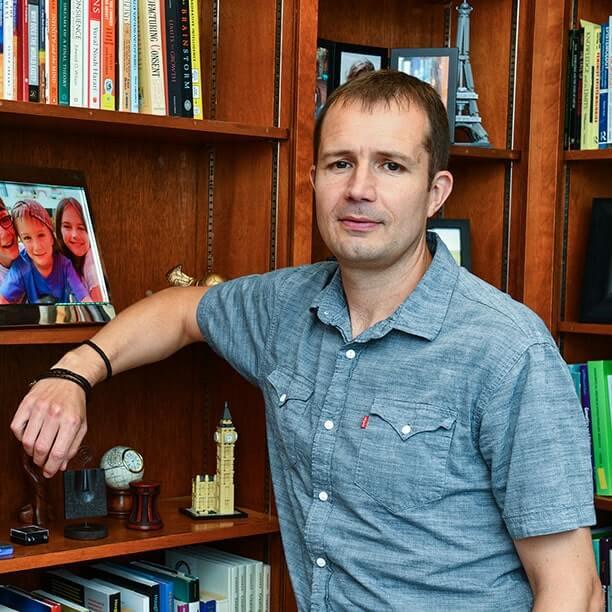JOHNSON CITY – Dr. David Harker’s research, like the philosophy and purpose of science, was always important in academic circles. But in recent years, it has reached a deep level of relevancy – both in the United States and throughout the world.
“Vaccine skepticism and vaccine hesitancy are big problems, and they are also really complicated,” said Harker, a professor and chair of Philosophy and Humanities at East Tennessee State University.
Harker has considered some of the reasons why such indecision exists.
“There is nothing very intuitive about the idea of injecting something into your arm helping protect you from disease,” he said.
Misinformation – and confusion about how the scientific process of observing, predicting and analyzing works – also plays a critical role.

“When public health officials update their advice and recommendations in light of new information, there is a tendency for people to offer this as evidence that somehow health officials are incompetent or unreliable,” he said. “We don’t make progress within any discipline without change, and when health officials are dealing with very new threats to public health, then I think we should all hope that they will be providing the best advice relative to the evidence they have available to them.”
Harker, whose 2015 book “Creating Scientific Controversies: Uncertainty and Bias in Science and Society” earned rave reviews, is also interested in clear critical thinking and quality decision making, skills lauded in higher education.
Those who earn a college degree, the argument goes, should be well-equipped to make decisions based on solid evidence and objective reasoning. For Harker, what’s troubling is when someone reaches a conclusion that challenges established expertise.
“When it comes to vaccine hesitancy,” he said, “one of the biggest problems now is that people trust their own evaluations of the evidence rather than entire communities who have collectively spent decades studying the relevant methods, evidence and so on.”
To learn more about Harker and his work, listen to his recent appearance on Primary Sources, an ETSU podcast that spotlights research happening on campus, at etsu-primary-sources.podbean.com.